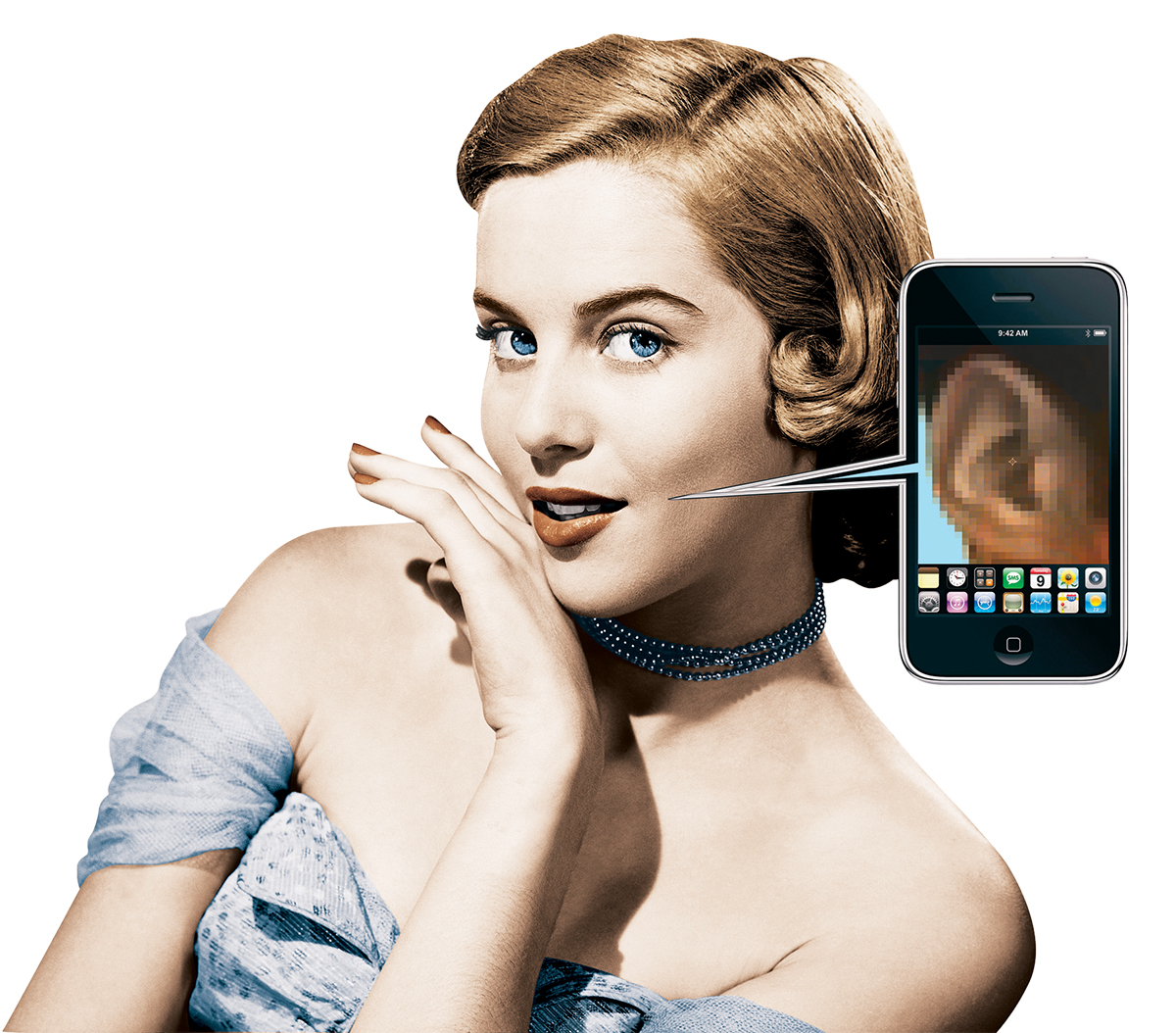So Appy Together

Illustration by Viktor Koen
Turkle, a sociologist and clinical psychologist, has spent the past two decades exploring the relationship between humans and robots. She’s currently researching Siri and the way its users have, in only a few months’ time, come to think of it as a nonjudgmental best friend. Siri is a “cultural preparation for a kind of intimacy with our machines that will take us to a new level,” Turkle explains. As humans, she says, we’re programmed to anthropomorphize objects. But until now, these objects haven’t been programmed to love us back.
“We’re at a moment of temptation,” she says. “We’re entering into a whole new level of relationship with inanimate objects. And they’re not just inanimate objects that we can project on. We have objects that have little minds of their own.”
So that’s why I lie to my phone about my calories, because I feel like it thinks less of me when I screw up?
“The calorie counter externalizes our self-expectations,” Turkle says, explaining that these devices are becoming extensions of us. “We don’t want to have some piece of ourselves punishing us.”
I thought these apps were supposed to be giving us control over our lives. But here we are, feeling beholden to them, feeling guilty in their presence. “Nagging is still nagging, whether it comes from your phone or your mom,” says Jessie Gruman, a social psychologist who heads the Center for Advancing Health, a patient-advocacy group out of Washington, DC. Gruman is a four-time cancer survivor who’s tried nearly every program on the market to help keep her weight up after she lost a portion of her stomach to the disease. But she gets so frustrated with the apps — with how time-consuming they are, or how generally annoying they become — that she’s deleted more than she can count. Because we think of our phones as tools that serve us, it’s disconcerting to find ourselves responding to their demands, she says. “We like our relationships with our devices to remain constant and uncomplicated.”
One unseasonably warm evening in January, I arrive at NuVu studio in Central Square to meet a group of what are known as self-trackers — people who use data and technology to help make sense of their lives. About two dozen men and a few women, mostly in their thirties, sit in red and yellow swivel chairs. Lounging on sofas in the back is a group of teenagers who attend NuVu as part of a magnet high school program.
Self-trackers measure, time, and count just about everything they do, keeping track of it all as a way to improve their health and their existence. One presenter at the meeting explains how he combined self-tracking with holistic principles to speed his recovery from a backbreaking fall. The teenagers describe how they’re trying to increase productivity by snoozing in two-hour chunks throughout the day, a technique called polyphasic sleep. They looked tired.
Modern technology has made it a lot easier to keep track of our lives, which is probably why more and more of us seem to be doing it. Who goes through the trouble of balancing a checkbook anymore? The concept is absurd. Instead, we log onto our bank’s website and get a snapshot of our activity. Or we hand over our banking passwords to sites like Mint for insight into our overall financial situation. In a way, we’ve all become self-trackers. But as you might expect, some of us are more hard-core than others.